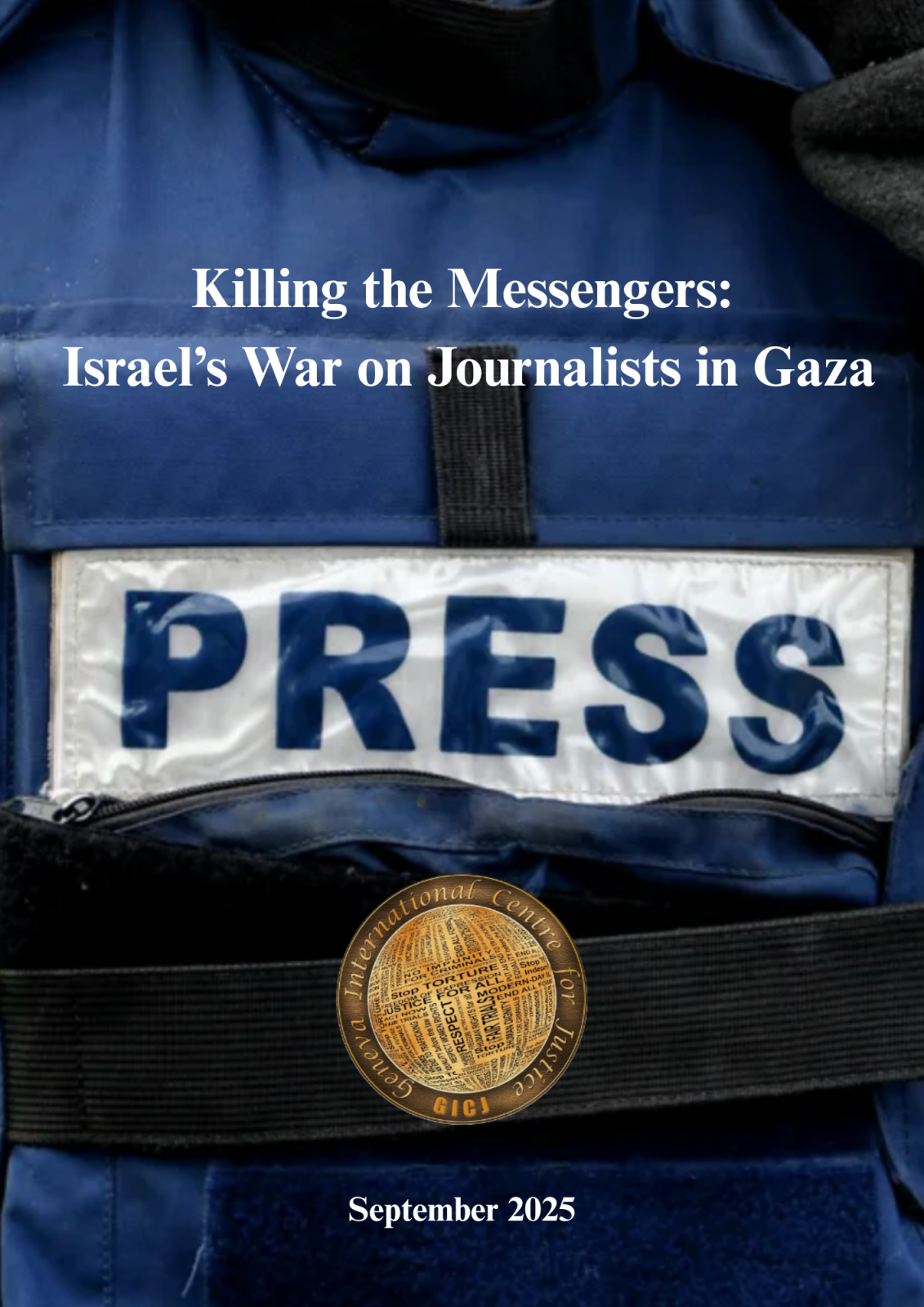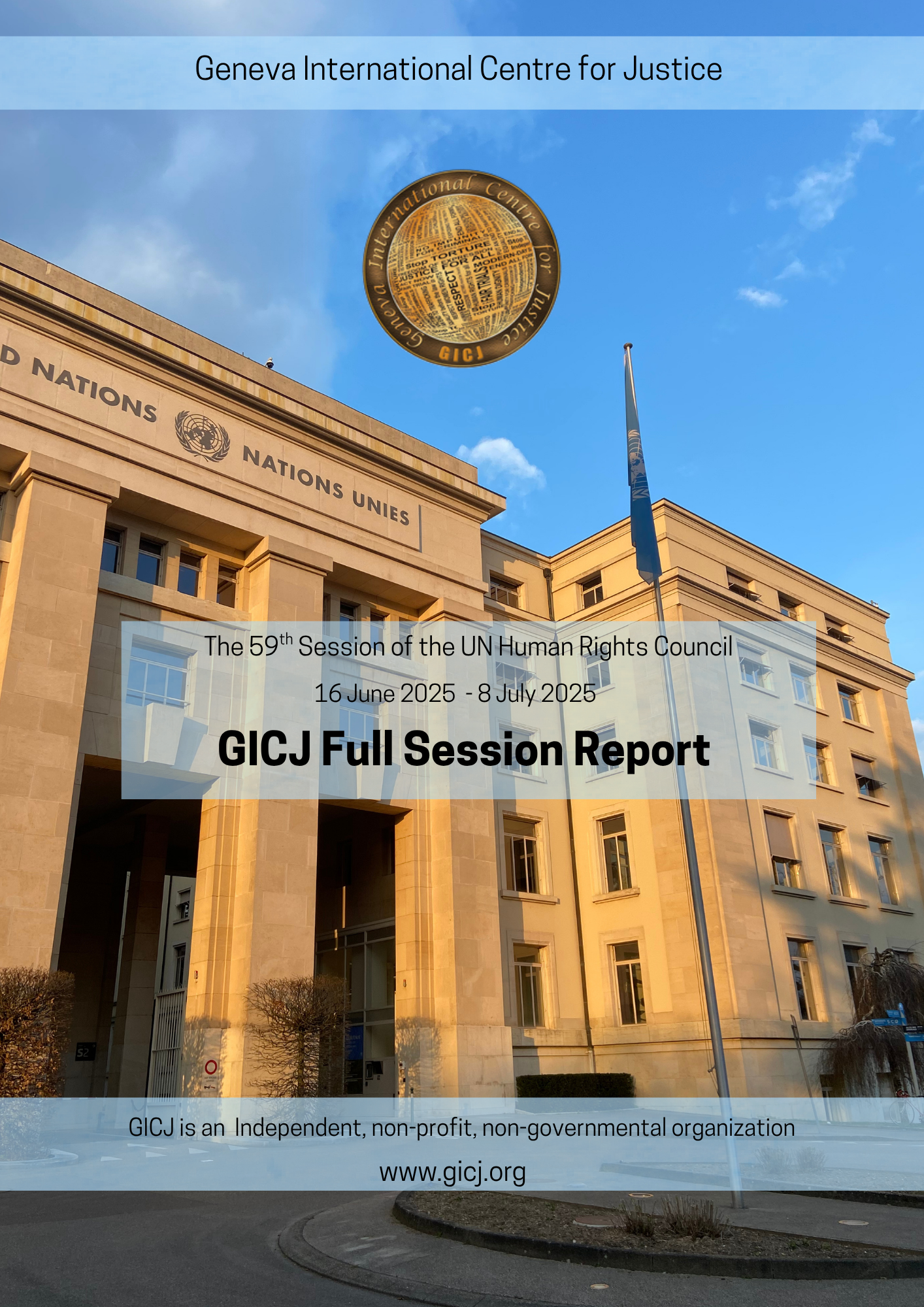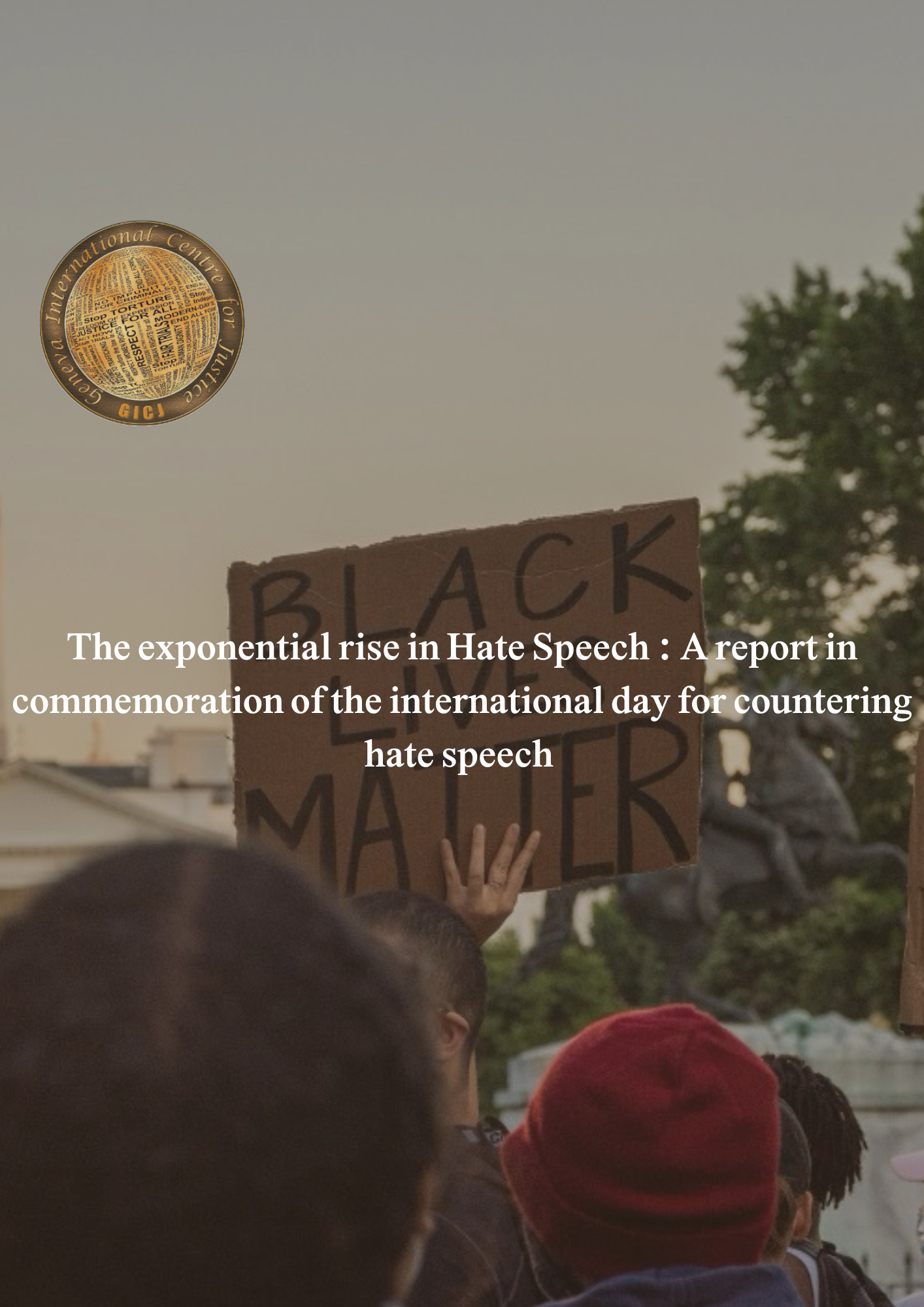
With an estimated one million people having been victims of enforced disappearance, the Committee published on the 4th of April 2023 a report of its visit to Iraq in November 2022. The report highlights ongoing patterns of enforced disappearance, and calls on the state to urgently implement a number of recommendations submitted by the Committee.
In light of this, Geneva International Centre for Justice (GICJ) organised, on the 5th of April 2023, an online dialogue session with United Nations’ Committee on Enforced Disappearances represented by Ms. Barbara Lochbihler, Vice-Chairperson of the Committee and Rapporteur for Iraq, Ms. Alban Prophette-Pallasco, Executive Secretary of the Committee, and more than fifty members or Iraqi civil society, among them academics, lawyers and representatives of the victims as well as a number of media professionals and representatives of TV satellite channels.
In advance of the country visit, GICJ held training sessions for local civil society organisations in Iraq in May and October 2022. The aim of these sessions was to build the capacity of organisations representing victims of differences to enable them to communicate about instances of disappearances to international bodies, including the Committee on Enforced Disappearances, and support their efforts to achieve accountability for the extensive violations that have been recorded. Working collaboratively, GICJ oversaw the production of regional reports on the current human rights situation in different areas of Iraq which facilitated a briefing to the Committee about key areas of concern that they should focus on.
During the country visit itself, GICJ organised a meeting on the 18 th of November 2022 between the Committee delegation and representatives of civil society to allow them to convey concerns and individual cases directly to the international experts.
The CED Report and Discussion
The report of the country visit thoroughly examines the different waves and patterns of “widespread” enforced disappearances that have occurred in Iraq since 2003, condemning the inaction of the government of Iraq to adequately respond to prevent and punish violations of international law. The report was particularly critical of the disappearances carried out by Iraqi armed forces, including militias in Anbar, Diyala, Kirkuk, Ninewa, Salah Al-Din, Baghdad and Babil, for which families of victims are still awaiting information, accountability, finality and reparation. To address these protection gaps, Iraq was urged to take an extensive range of measures including to strengthen judicial, administrative processes, increase good faith cooperation with civil society, and implement programmes to address the multi-faceted harms caused by disappearances. The Committee on Enforced Disappearances called on Iraq to address this reality of the grave human rights violations in all its dimensions and diversity, and to at all times act motivated by full respect for the rights of the victims.
During the dialogue, the Committee on Enforced Disappearances explained that its report has called on all the Iraqi authorities to develop a comprehensive strategy to investigate all cases of enforced disappearance. The Committee emphasized the importance of involving the High Independent Commission for Human Rights in Iraq, civil society organizations, and victims' families in the search and verification processes. The Committee also urged the Iraqi authorities to strengthen the capacity of forensic medicine to ensure accurate exhumation of bodies and involve families in search operations and forensic services.
Additionally, the Committee called for legal measures to prosecute perpetrators of enforced disappearances, regardless of their ethnicity, and to end impunity in the country. Iraq is also urged to establish independent "task forces" to verify records of all places of detention and create a central register of detainees accessible to relevant parties. The Committee recommended the establishment of an independent committee, including international experts, to verify the existence of secret places of detention. Measures to address the needs and rights of victims, including adequate compensation, were also addressed.
The Committee reiterated its commitment to supporting efforts to prevent and eliminate enforced disappearances and hold perpetrators accountable through international cooperation. The members of the Committee outlined a plan of action for the authorities to reveal the fate of the disappeared persons with the cooperation of relevant institutions and civil society organisations, the Iraqi Independent High Commission for Human Rights, and families of the victims, with international support.
During the discussion between the participants and the members of the Committee, questions were asked regarding the recommendations and the provision of the Convention, and also on further steps that Iraq has to take to implement its international obligations and reveal the fate of all the forcibly disappeared regardless of the accusations made.
In conclusion, the Committee called on Iraq to establish a comprehensive strategy for search and investigation of disappearances, strengthen forensic capacity, establish an independent task force to cross-check registers of detainees, clarify allegations of secret detention, and ensure that victims are considered such and entitled to their rights as stipulated in the Convention. The Committee emphasised the urgent need for intervention by Iraq, neighbouring countries, and the international community to address the issue of enforced disappearance in Iraq.
Read more:












